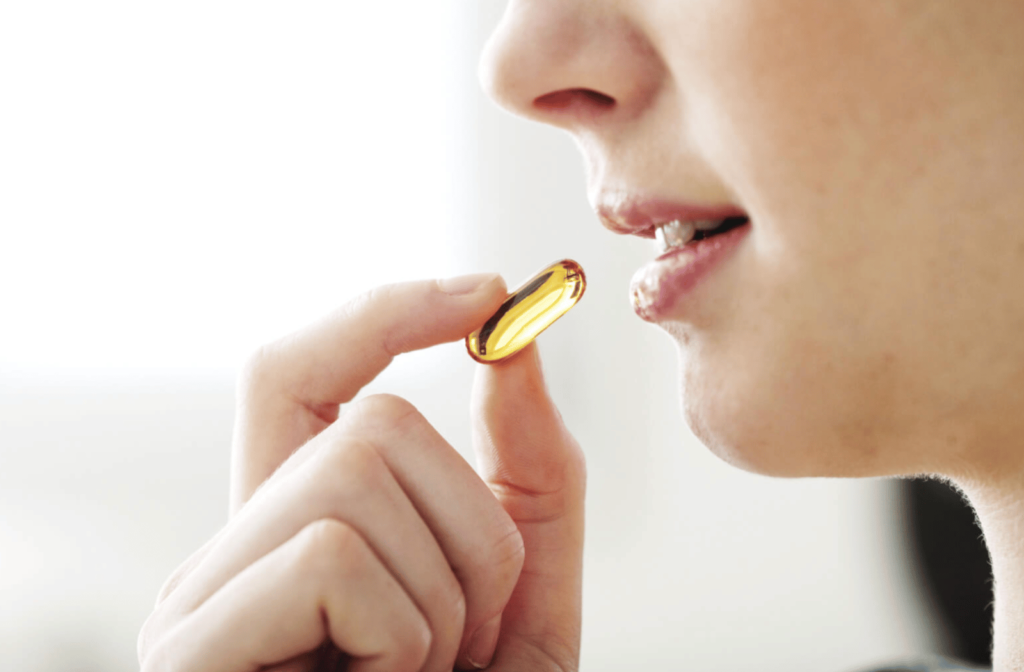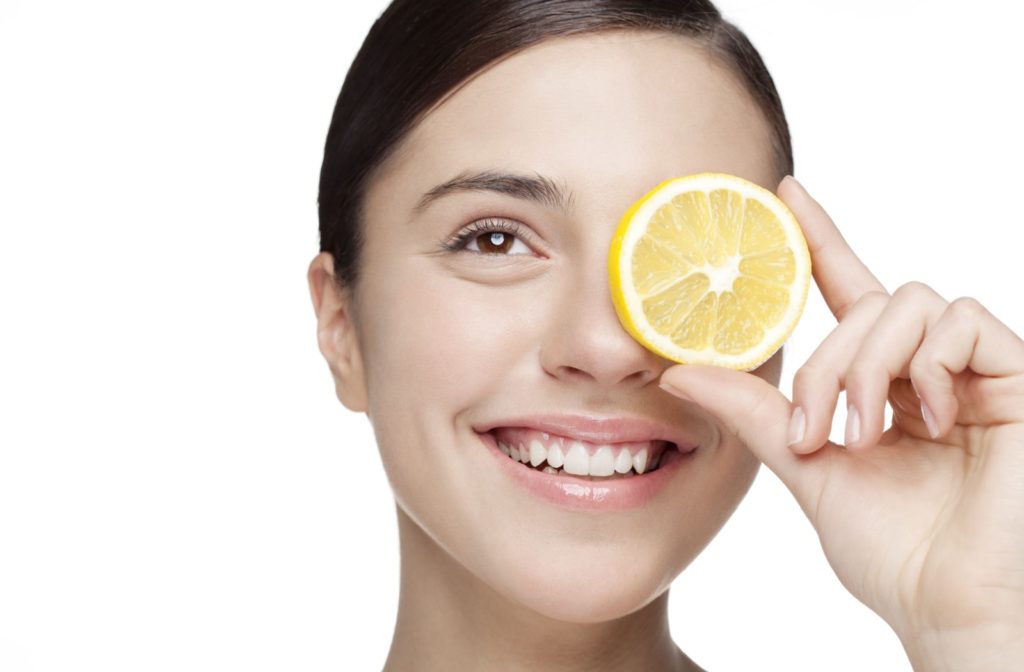When dealing with dry eye symptoms, it’s easy to grab the eye drops and leave it at that. But there is more you can do to protect your vision. Omega-3s and vitamins A, D, and C may keep your eyes moisturized and your tears healthy.
Dry eye syndrome has various causes, and your optometrist may be able to diagnose them with a comprehensive eye exam. It all begins with knowledge. Once we know what’s behind your dry eyes, we can suggest solutions and lifestyle changes that address dry eye symptoms.
What Is Dry Eye Syndrome?
It’s estimated that 30% of Canadians experience dry eyes in some form. While that means it’s relatively common, not everyone understands why it happens. Because while “dry eyes” describe what it feels like, it doesn’t necessarily describe the mechanism behind it.
Dry eyes typically occur because of decreased tear production or your tears evaporating too quickly. This is because your tears are more than just water. They protect your eyes from the elements, so they must be in top shape to do their job.
Your tears are made of enzymes, lipids, metabolites, and electrolytes that work together to lubricate and nourish your eye’s surface. When something goes wrong with your tears, it can lead to a variety of symptoms, such as:
- Irritation
- Redness
- Burning or scratchy sensation
- The feeling of something in your eye
- Blurry vision
- Light sensitivity
- Mucus discharge
- Excessive tearing (Your eyes might try to overcorrect when they think your eyes are too dry.)

Vitamins for Dry Eyes
Much of our vitamin intake comes from our diet. As long as you’re eating a well-balanced, healthy diet, you should be getting your daily amount of vitamins. If you aren’t getting enough of a particular vitamin through food, you can make up the difference with supplements.
However, it is possible to have too much of a good thing. If you already have enough of a particular nutrient and start adding more, it won’t address your dry eyes, and, what’s worse, it could be harmful. Check with your doctor before taking supplements.
Omega-3 Fatty Acids
Fats can come in both “good” and “bad” varieties, and Omega-3 is a polyunsaturated fat, which is typically considered a good fat.
Researchers say that omega-3 fatty acids may reduce inflammation and the growth of abnormal blood vessels related to other eye diseases. Inflammation can both be a symptom and a cause of dry eyes, especially if the inflammation is on the eyelids.
Your eyelids are lined with small meibomian glands, which release oil that keeps your tears from evaporating. If these glands are inflamed, they could be unable to excrete their oil. Omega-3s appear to improve these glands’ function, which is why many optometrists suggest adding or increasing omega-3s in your diet if you’re experiencing dry eyes.
While supplements are common, foods high in omega-3 fatty acids include:
- Cold-water fatty fish, such as salmon
- Flax seeds
- Chia seeds
- Walnuts
- Plant oil, such as flaxseed, soybean, and canola
Vitamin A
Vitamin A is a potent antioxidant that’s vital for eye health. A healthy amount of vitamin A is needed to give us colour and low-light vision, and its antioxidant properties can help reduce your risk of age-related macular degeneration. It’s also necessary to produce tears, so a vitamin A deficiency can lead to dry eye syndrome.
Good sources of Vitamin A include:
- Carrots
- Sweet potatoes
- Pumpkin
- Squash
- Red pepper
Vitamin C
Vitamin C is another powerful antioxidant known for supporting your immune system. Studies have shown it’s also vital for ocular health, as it may reduce your risk of cataract progression. Like other antioxidants, vitamin C may help improve tear production and moisturize your eyes.
Foods high in vitamin C include:
- Oranges
- Bananas
- Apples
- Raw spinach
- Tomatoes
Vitamin D
Vitamin D is a fat-soluble vitamin that we primarily absorb from the sun. In Canada, many people don’t get enough vitamin D from everyday exposure, so they use supplements to compensate for the deficit.
Some studies point to vitamin D’s effectiveness in reducing inflammation on the eye’s surface, which can help with dry eye symptoms, but a lack of vitamin D may result in fewer tears overall. This lower production can be harrowing for people who already produce fewer tears, so getting outside more or taking vitamin D supplements could be a way to prevent dry eye syndrome.
Unfortunately, vitamin D isn’t present in many foods naturally. You still may be able to find milk or cereal that have been fortified with vitamin D. Otherwise, add some of the few foods that are high in vitamin D to your diet, including:
- Tuna
- Egg yolks
- Salmon
Dry Eye Treatment for Everyone
It can get exhausting when your dry eye symptoms keep coming back. Dr. Shonah Finlay at Doctors Eye Care Grande Prairie offers treatments for dry eyes, but it’s even better to prevent it from happening in the first place.
If you’re experiencing dry eyes that won’t stay away, book an appointment in Grande Prairie and learn how to find relief today.




